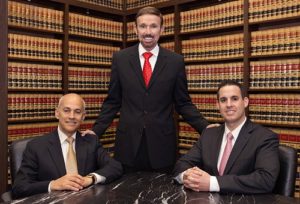You might not think lying about who you are is a big deal, but in California you can get into trouble if you falsely identify yourself in several ways. Simply lying to a police officer, and/or telling him or her that you are somebody else could get you arrested for committing a misdemeanor. Using a fake ID can lead to even more trouble.
If you manufacture, display, or possess a fake ID with the intent to commit forgery, you could be charged with a felony, depending on the circumstances.
Below are some of the more frequent ways you can get into trouble for misuse of and ID card.
Examples of Using a Fake ID that Could Lead to Your Arrest
Situations which could trigger your arrest for violating California’s identity laws include, but are not limited to the following:
- A minor using a fake ID to buy cigarettes;
- A person under the age of 21 using someone else’s driver’s license to buy alcohol or get into a bar or nightclub;
- An undocumented alien using a fake ID in order to pretend to be a U.S. citizen. This could also trigger charges of violating federal citizenship fraud laws.
Vehicle Codes 13004 and 14610: Unlawful Use of Identification Cards
It is a misdemeanor to use an identification card as follows:
- To display, cause or allow to be displayed, or possess any canceled, fictitious, fraudulently altered or fraudulently obtained I.D. card;
- To lend another person your identification card, knowingly allowing another person to use it, or allowing your card to be used in another unlawful manner;
- To use someone else’s I.D. card to identify yourself;
- To photograph, duplicate or in any way reproduce an identification card so that it is mistakable for a valid I.D. card (or to possess such a card); and
- To otherwise alter an identification card in any unlawful way.
Penal Code 148.9: False Identification to a Police Officer
Falsely identifying yourself to a police officer by telling him or her you are somebody else or a fictitious person upon your detention or arrest or to avoid being investigated is a misdemeanor.
It is also a misdemeanor to give false information, either orally or in writing, to a peace officer when you know the information is false (Vehicle Code 31).
Penal Codes 470a and 470b: Using a Fake ID to Commit a Forgery
You can be found guilty of violating Penal Code 470a if you alter, fake, forge, duplicate or counterfeit any form of government issued identification with the intent to commit a forgery.
You can also be prosecuted if you display or possess someone else’s driver’s license or ID card or a faked ID with the intent to commit any forgery.
Both of these are types of fraud are considered “wobbler” offenses in California, meaning the prosecutor has the option of charging you with either a misdemeanor or a felony. The prosecution will determine how to charge based on:
- The circumstances of the offense; and
- Your criminal history, if any
Under Penal Code Section 470, “forgery” is defined as knowingly altering, manipulating or creating a written document or instrument with the intent to obtain an undeserved personal gain. Counterfeiting is defined as altering, manipulating or creating an imitation of an item intending to pass it off as genuine.
Consequences of Being Convicted for Violating California Identity Laws
If you are convicted of a misdemeanor for violating identity laws in California, you face up to either six months or 364 days in jail and a maximum $1,000 fine.
If you are convicted of a felony, you face 16 months, or two or three years in jail and a maximum $10,000 fine. If you have served a prior prison term or you have any strikes on your record, your sentence could be greater than three years in custody.
Under federal law, misdemeanor and felony crimes punishable by one year or more may also trigger deportation proceedings against you if you are not a U.S. citizen. It does not matter if you serve the sentence or not. You could face immigration consequences for violating California identity laws if you are not a U.S. citizen.
The Attorneys at Wallin & Klarich Can Help You
If you or someone you care about has been charged with a fraud-related crime such as displaying a fake ID, you need to speak to one of our skilled criminal defense attorneys at Wallin & Klarich as soon as possible. You could be prosecuted for a misdemeanor or a felony, depending on the circumstances of your offense.
Our attorneys at Wallin & Klarich have over 35 years of experience successfully defending clients facing fraud-related charges. Hiring an attorney from Wallin & Klarich is your best chance to avoid serious consequences such as jail time, heavy fines and possible deportation.
With offices in Los Angeles, Torrance, Tustin, San Diego, Riverside, San Bernardino, West Covina and Victorville, our criminal defense attorneys at Wallin & Klarich are available 24 hours a day, 7 days a week to provide you with the very best legal representation. We will do everything we can to help you win your case.
Call us today at (888) 280-6839 for a free telephone consultation. We will get through this together.



